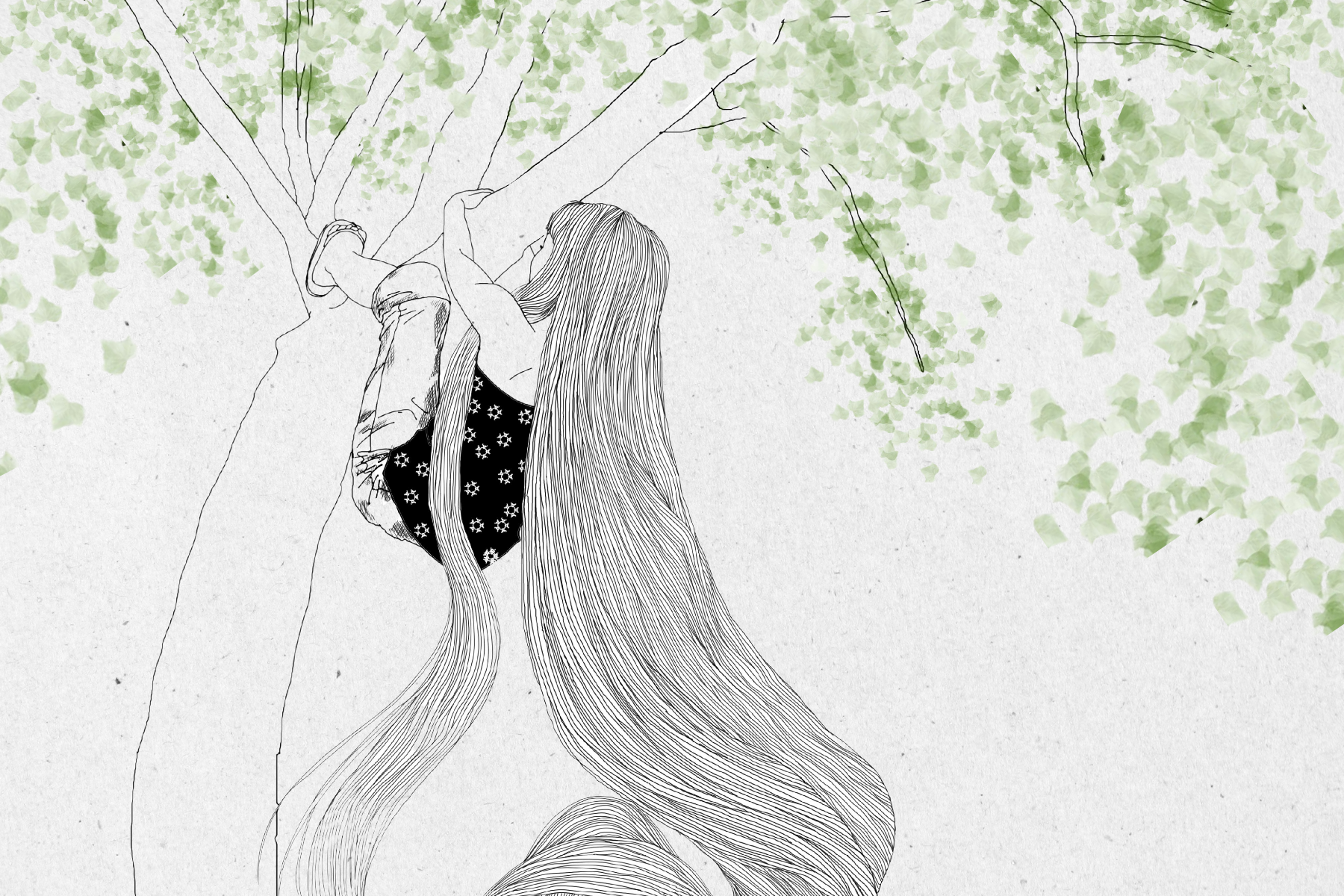When I was a kid, I went through a phase of climbing trees — or rather, one tree in particular. At the time, I lived in an apartment complex with cluster mailboxes located outside in the center courtyard. A medium-sized tree loomed over the mail area. from my memories, I’d guess it was around 10-15 feet tall, but considering that my perception of height was different at 6 years old than it is now, it could have been smaller in reality. Though it wasn’t a huge tree and was also somewhat thin, it was still sturdy: no worry of branches snapping due to bearing weight. On summer afternoons, I got into the habit of climbing it and sitting in a corner where a branch met the trunk, either reading or just staring out into the sky.
The tree’s branches, low and evenly spaced, made it a prime climbing tree: I could choose various “seats” (branches) to half sit/half stand on depending on how high up I wanted to be. Sometimes, a friend would sit in the tree with me; other times, I climbed alone. Bemused neighbors would sometimes come to pick up their mail while I was there, cocking their heads up at the child sitting by herself seven feet above the ground. One of them, a younger woman, once got curious about what I was doing. “Enjoy your tree!” she said as she walked back to her apartment, mail and keys jingling in her hand.
I hadn’t thought about this tree-climbing phase in years — until this year’s Tu Bishvat, the birthday for trees and Jewish Earth Day, started to approach. In ancient times, Tu Bishvat served as the official date to mark when trees became one year older, even if they were not actually planted then — a necessary ritual in order to obey to the line in the Torah that states, “[w]hen you enter the land [of Israel] and plant any tree for food, you shall regard its fruit as forbidden. Three years it shall be forbidden for you, not to be eaten” (Leviticus 19:23). Since then, Tu Bishvat has evolved to involve different traditions and meanings. It’s a day to remember to appreciate nature and to highlight the Jewish people’s God-given responsibility to care for the Earth. During this holiday, Jewish people also traditionally eat foods from the seven species and hold a Tu Bishvat seder.
As I began to think about the approaching holiday, these memories came to me. Like many people, I associate spending extended periods of time outdoors and connected to nature with childhood, when such experiences were common. And in the past year or so, there’s been a lot of online chatter about “inner child work” or “channeling your inner child”: connecting to your playful, childish self in order to improve your well-being in adulthood, bringing childhood attitude and excitement into the present day, and doing activities that you either used to do or had wanted to do as a child.
Since the fall, I’ve incorporated a few things into my life that “channel the inner child.” I’m reading more (an everlasting goal in addition to being something I did a lot of as a child) and picking up new hobbies like embroidering and doing 500-piece puzzles (grown-up variations of the types of activities I enjoyed growing up). I’ve realized, though, that a piece has been missing from this effort: devoting carefree, playful time outdoors. Combining celebrating Tu Bishvat with channeling the inner child is a natural fit.
When I think of my tree-climbing days, I think of feeling serene, the sensation of the rough tree bark on my fingertips and the sun in my eyes as I viewed the world from high up, in awe of the world around me — now viewed from a (literal) different angle. In my childhood bravery, I somehow had no care in the world, not scared of falling or of people staring at me.
I encourage you to channel a carefree, child-like attitude of wonder towards nature in a different way during the holiday. This could mean lying down underneath a tree, looking up to marvel at the branches and the sun peeking through them. It could mean throwing a frisbee around in your local park. In winter weather, it could be going to an indoor botanical garden or doing something as simple as marveling at wildlife from your window. Whatever it is, this Tu Bishvat, try to do it with the same appreciation, wonder, and confidence that a child might.
As for me, I may try to find a tree to climb.



